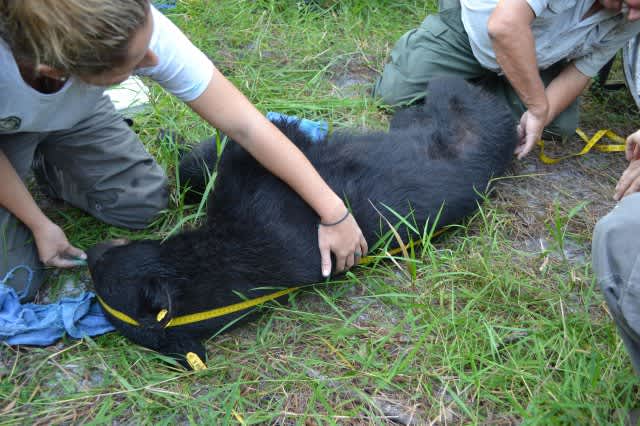Florida Black Bears Surprisingly Active This Winter
OutdoorHub Reporters 01.10.14

Florida wildlife officials are warning residents that bears are surprisingly active this winter, especially in the central regions of the state. According to the Orlando Sentinel, the Florida Fish and Wildlife Conservation Commission (FWC) received more than 500 bear complaints last December, which is much higher than usual.
“The numbers give us a trend,” said FWC bear expert Mike Orlando. “The thing I think is going on […] is that bears aren’t entering winter lethargy or hibernation because there is available food.”
Black bears are not true hibernators. Instead, biologists say that the animals enter a period of “winter lethargy” where the animals retreat into dens during the colder months. Black bears in colder climates enter deeper states of lethargy, in which they sleep longer and are less likely to be woken up. Bears in the warmer Florida climate, however, are relatively light sleepers and have been known to become active should an animal or human pass their den. Like true hibernators, black bears reduce their movement in winter due to the lack of food.
Last December marked an unusually high number of bear-human conflicts in Florida. The month started off with the brutal mauling of a 54-year-old woman on December 2, which biologists are calling the worst bear attack in the state’s history. Other complaints involved bears strolling through residential neighborhoods, likely looking for food. Bears are not reluctant to break through doors or fences in order to scrounge an easy meal, especially if such tactics paid off in the past. FWC officials say residents should always practice good trash management and keep discarded food in secure containers. Wildlife officials estimate there to be around 3,000 black bears currently living in the state.

